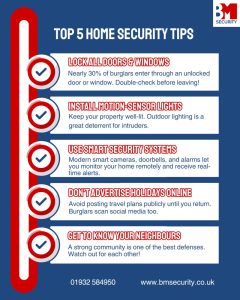Have you ever wondered why Homeland Security would raid a home like yours or someone you know? It’s not just about big headlines or dramatic TV scenes.
When Homeland Security steps in, there’s usually a serious reason behind it—something that affects your safety or the security of the country. Understanding what triggers these raids can help you see the bigger picture and maybe even protect yourself. Keep reading to find out what could lead to such an intense action and why it matters to you.
Common Triggers For Raids
Homeland Security raids happen for serious reasons. Authorities act when they suspect crimes that threaten safety. These raids aim to stop illegal activities quickly. Understanding common triggers helps explain why these operations occur.
Suspicion Of Terrorism
Terrorism is a top concern for Homeland Security. Suspicious activity linked to terrorism prompts raids. This includes planning attacks or supporting terrorist groups. Authorities gather evidence to prevent harm to the public.
Human Trafficking Allegations
Raids occur when there is evidence of human trafficking. This crime involves forcing people into labor or sex work. Homeland Security targets locations that hide victims or traffickers. Rescuing victims and arresting criminals is the main goal.
Drug Manufacturing And Distribution
Homes used to make or sell drugs often face raids. Illegal drug operations pose risks to communities. Agents look for labs, packaging areas, and drug shipments. Raids disrupt these dangerous networks quickly.
Weapons Possession And Trafficking
Illegal weapons or trafficking activities trigger raids. Authorities seek to stop the spread of firearms and explosives. Homes suspected of holding or selling weapons become targets. These actions aim to prevent violence and crime.
Intelligence Gathering Methods
Understanding why Homeland Security might raid a home starts with knowing how they gather intelligence. Their methods are carefully chosen to build a strong case before taking such a serious step. These intelligence gathering techniques help authorities pinpoint threats and ensure their actions are justified and precise.
Surveillance Techniques
Surveillance is a key tool in monitoring suspicious activity. Agents may use physical surveillance by following suspects or observing their homes and workplaces discreetly. They also employ video and photographic equipment to capture detailed evidence without alerting the target.
Have you ever noticed unfamiliar cars parked nearby or people watching from a distance? That could be an example of surveillance in action. This method helps build a timeline of behaviors and associations, which is crucial before any raid.
Informant Tips
Sometimes, the best information comes from people who are close to the suspect. Informants provide inside knowledge that surveillance alone might miss. Their tips can reveal plans, hidden locations, or accomplices that authorities need to know about.
Think about how often rumors or warnings come from unexpected sources in your own life. Informants work the same way, giving Homeland Security leads that make their investigations sharper and more effective.
Electronic Monitoring
Electronic monitoring involves tracking communications and digital footprints. This can include phone calls, emails, social media activity, and even GPS locations. It provides real-time insights into a suspect’s movements and contacts.
Imagine how much your phone reveals about your daily routine and conversations. Homeland Security uses this data legally, with proper authorization, to uncover hidden networks or threats. This level of monitoring can be a game-changer in deciding to execute a raid.
Legal Grounds For Entry
Understanding why Homeland Security might raid a home involves knowing legal grounds for entry. These grounds ensure actions are lawful and justified. Authorities must follow specific rules to enter someone’s property. This process protects citizens’ rights while ensuring safety and security.
Search Warrants
A search warrant is a legal document. It allows authorities to enter a home. A judge issues this warrant. It specifies the place to be searched and items sought. Authorities must show probable cause to get a warrant. They must provide evidence of illegal activity. Without a warrant, entry is usually not allowed. Search warrants are crucial for protecting privacy rights.
Exigent Circumstances
Exigent circumstances allow entry without a warrant. These situations involve emergencies. For example, when there is a risk of harm to people. Or if evidence might be destroyed quickly. Authorities can act swiftly in these cases. Exigent circumstances are exceptions to usual legal requirements. They ensure public safety and protect evidence from being lost.
Consent Searches
Consent searches happen when a person allows entry. The homeowner or occupant gives permission. This consent must be voluntary. No pressure or trickery should influence the decision. Individuals can refuse consent. They can also limit the search area. Consent searches are less formal but still valid. They rely on the cooperation of the home’s occupants.

Credit: www.latimes.com
Unexpected Reasons For Raids
Homeland Security raids often surprise people with their unexpected reasons. These actions are not only about terrorism or major crimes. They also target less obvious issues that impact national safety and law enforcement.
Understanding these reasons helps explain why authorities may act quickly and decisively. The goal is to protect the country in many different ways.
Immigration Violations
Raids often focus on immigration issues. Officers search for people staying illegally. They also look for employers breaking immigration laws. These raids aim to stop illegal work and protect legal jobs. Many times, homes hide people without proper papers.
Cybercrime Investigations
Homeland Security targets cybercriminals using homes as bases. Hackers and online fraudsters operate from private residences. Raids seize computers and devices to stop cyber attacks. These investigations prevent identity theft and data breaches. Technology crimes can harm many people quickly.
Counterfeit Goods Operations
Raids also target counterfeit goods produced or stored at homes. Fake products harm businesses and consumers. Homeland Security looks for illegal copies of clothes, electronics, and medicines. Stopping these operations protects public health and supports fair trade. Homes sometimes hide these illegal items.
Impact On Homeowners
Having Homeland Security raid your home can turn your life upside down in an instant. The impact goes beyond the immediate disruption—it affects your legal standing, mental health, and ability to move forward. Understanding these effects can help you prepare and protect yourself if you ever find yourself in this situation.
Legal Consequences
A raid often signals serious legal issues that you must face immediately. You might be questioned, detained, or even arrested depending on the situation. Your property could be seized as evidence, which complicates your defense.
It’s essential to get a skilled attorney as soon as possible. They can help you navigate complex laws and protect your rights. Ignoring legal advice can lead to harsher penalties or loss of property.
Emotional And Psychological Effects
Being raided is traumatic and can leave lasting emotional scars. Many homeowners report feelings of fear, anxiety, and helplessness afterward. The sudden invasion of privacy shakes your sense of security in your own home.
You might experience trouble sleeping or concentrating. These effects can strain your relationships and daily life. Don’t hesitate to seek support from mental health professionals or trusted friends.
Rebuilding After A Raid
Recovering from a raid is about more than fixing physical damage; it’s about restoring your life. You’ll need to organize your legal defense, repair trust with family, and rebuild your sense of safety.
Start by documenting everything—what was taken, who was involved, and how you felt. This helps with both legal processes and personal healing. How will you regain control of your home and your future after such a disruption?

Credit: www.facebook.com
Preventive Measures
Preventive measures play a crucial role in avoiding a Homeland Security raid on your home. Understanding how to stay within legal boundaries and recognize potential risks can protect you from unexpected and stressful situations. Taking proactive steps helps you maintain peace of mind and safeguards your rights.
Legal Compliance Tips
Staying informed about the laws related to your activities is essential. Ensure all permits, licenses, and registrations are current and accurate. Keep clear records of your transactions and communications, especially if you handle sensitive or regulated materials.
Regularly review your compliance status with federal and state regulations. Simple actions like updating documentation or clarifying your purpose for certain possessions can prevent misunderstandings. Have you checked your legal standing recently?
Recognizing Warning Signs
Being alert to unusual behavior around your property can give you a valuable heads-up. Notices from government agencies, unexpected visits, or subpoenas should never be ignored. Early awareness allows you to respond calmly rather than react impulsively.
Signs like sudden surveillance or inquiries about your associates might indicate increased scrutiny. Reflect on whether any recent activities could have drawn attention. Would you know if your home was being monitored?
Seeking Legal Counsel Early
Consulting with a lawyer familiar with Homeland Security cases can make a big difference. Early advice helps you understand your rights and what to expect if authorities arrive. You gain clarity about how to respond without compromising your position.
Don’t wait for a raid to happen before getting legal help. Even a quick consultation can reveal risks you hadn’t considered. Imagine the confidence you’d have knowing you’re prepared for any scenario.

Credit: www.theguardian.com
Frequently Asked Questions
Why Would Homeland Security Raid A Home?
Homeland Security raids homes to investigate suspected threats to national security. They target illegal activities like terrorism, human trafficking, or immigration violations. Raids help gather evidence and prevent potential crimes that endanger public safety.
What Triggers A Homeland Security Home Raid?
Suspicious activity reports, intelligence tips, or ongoing investigations can trigger a raid. Authorities act on credible evidence suggesting illegal operations linked to security threats. Raids aim to disrupt criminal networks and enforce federal laws effectively.
How Does Homeland Security Conduct A Home Raid?
Agents usually obtain a warrant based on probable cause. They enter the premises swiftly to secure evidence and ensure safety. The operation involves coordinated efforts to minimize risks and uphold legal procedures during the raid.
Can Innocent People Be Affected By Homeland Security Raids?
Yes, sometimes innocent individuals may be caught up due to mistaken identity or flawed intelligence. However, agents strive to verify information carefully before taking action. Legal recourse is available for those wrongly targeted during raids.
Conclusion
Homeland Security raids happen for serious reasons. They aim to protect people and stop crimes. These actions target threats like terrorism, drug trafficking, or illegal immigration. Raids help find evidence and keep communities safe. Understanding why raids occur can reduce fear and confusion.
Being informed helps you stay alert and prepared. Safety is the main goal behind these operations. Knowing this can bring peace of mind to many.








